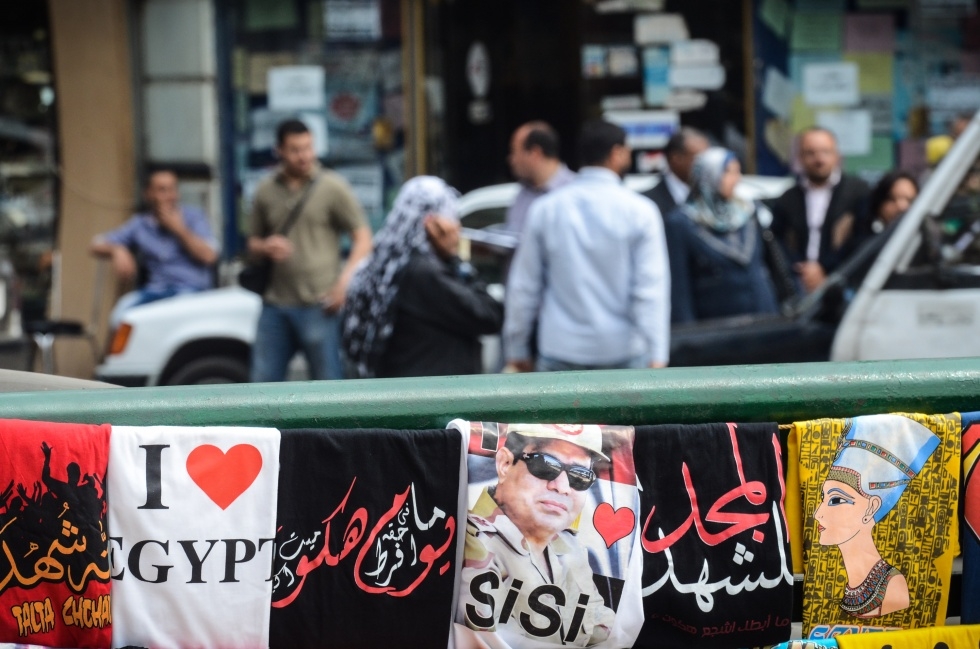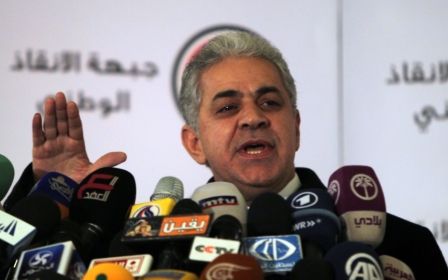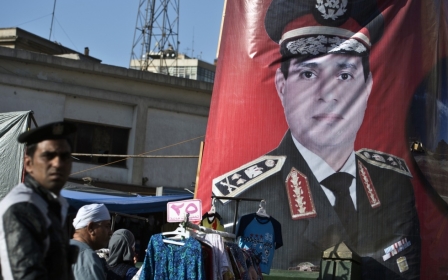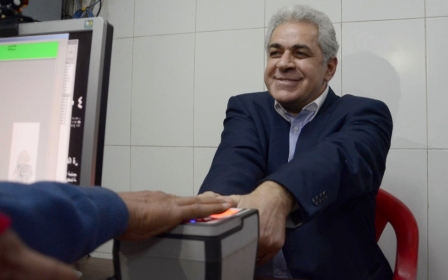Sisi calls for 'unprecedented' turnout in elections

Egyptian presidential frontrunner, former army chief Abdel Fattah al-Sisi, on Sunday urged an "unprecedented" turnout in a May presidential election he is widely expected to win.
Meanwhile, the main support bloc of ousted Morsi supporters has urged Egyptians to boycott the elections, describing the vote as a "farce".
The elections, scheduled for 26-27 May, will mark the second phase of an army-imposed transitional roadmap that should be completed later this year with the holding of parliamentary polls.
Former defense minister Abdel-Fattah Sisi, who led the army's ouster of democratically elected Morsi last July after his Muslim Brotherhood party was in power for one year, is contesting the polls against former presidential contender Hamdeen Sabahi.
Riding on a wave of support for overthrowing Morsi, Sisi is expected to easily defeat Sabahi.
New MEE newsletter: Jerusalem Dispatch
Sign up to get the latest insights and analysis on Israel-Palestine, alongside Turkey Unpacked and other MEE newsletters
Sisi's comments, made during a meeting with investors in the tourism industry, were distributed by his campaign team.
He urged an "unprecedented turnout in the next presidential election, regardless of who wins".
Sisi, who promised to revive the foundering economy and restore stability, blamed religious extremism for damaging the country's vital tourism industry.
"The tourism sector has been continuously harmed over the past 50 years because of a religious discourse unrelated to the developments and understanding of the age," he said.
Islamist militants killed dozens of tourists in attacks in the 1980s and 1990s. Three South Koreans were recently killed in a suicide bombing in February.
The attack was claimed by a jihadist group which said it would target economic interests in response to the crackdown on Islamists.
Although popular among the millions who protested for days demanding Morsi's removal, Sisi faces persistent opposition from Brotherhood supporters who hold near weekly protests.
A militant campaign has killed almost 500 policemen and soldiers since July.
Sisi said restoring security was related to tackling the country's dire economy, which has seen a drop in investment and tourism because of the unrest. It is heavily burdened by an increasingly expensive subsidy system that officials say will have to be cut, a move that could spark wider unrest if fuel prices rise.
"The [state of the] economy is one of the most important obstacles before society, and all other problems are related to it ," said the retired field marshal. "Improving the security system needs major economic resources."
Since Morsi's ouster, neither the government nor the Islamists have seriously broached reconciliation talks to end the crisis.
Thousands of Islamists have been placed on trial, including Morsi himself and most of the Brotherhood's leaders. On Monday, 683 alleged Islamist supporters of Morsi were sentenced to death in a Minya courthouse. In the same court, Judge Said Youssef Sabry also reversed the death sentences of 492 people sentenced to death in March, as a part of a mass trial of 529 Egyptians, according to AFP. Most of the sentences were commuted to life in prison.
In addition to supporters of the ousted president, Sisi is also likely to face strident demands from labour leaders who organised nationwide strikes over the past several years.
Middle East Eye delivers independent and unrivalled coverage and analysis of the Middle East, North Africa and beyond. To learn more about republishing this content and the associated fees, please fill out this form. More about MEE can be found here.




